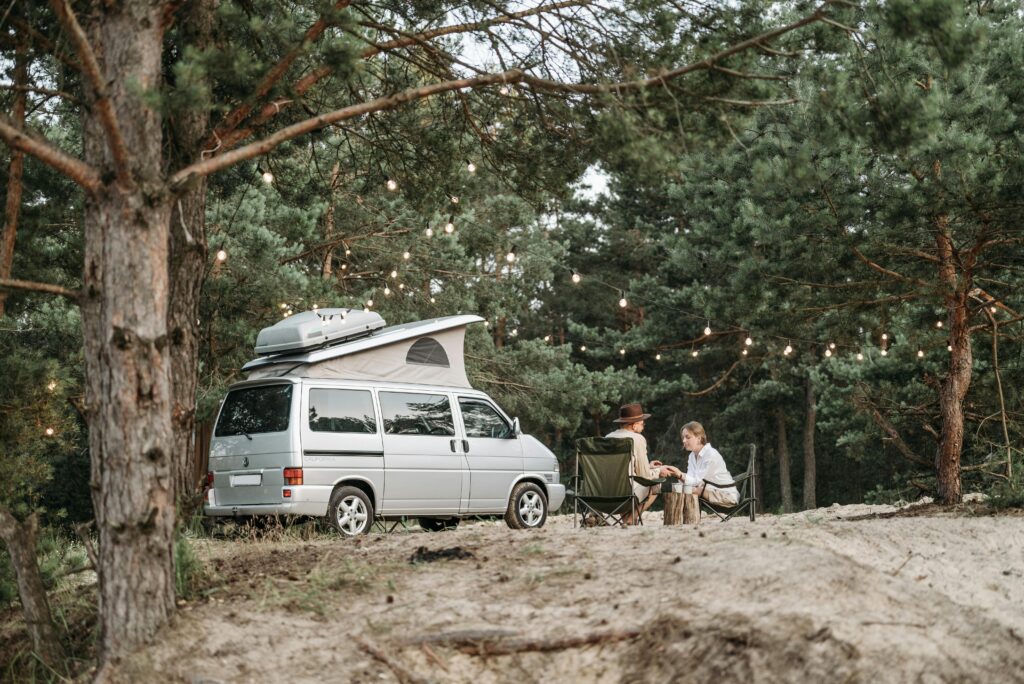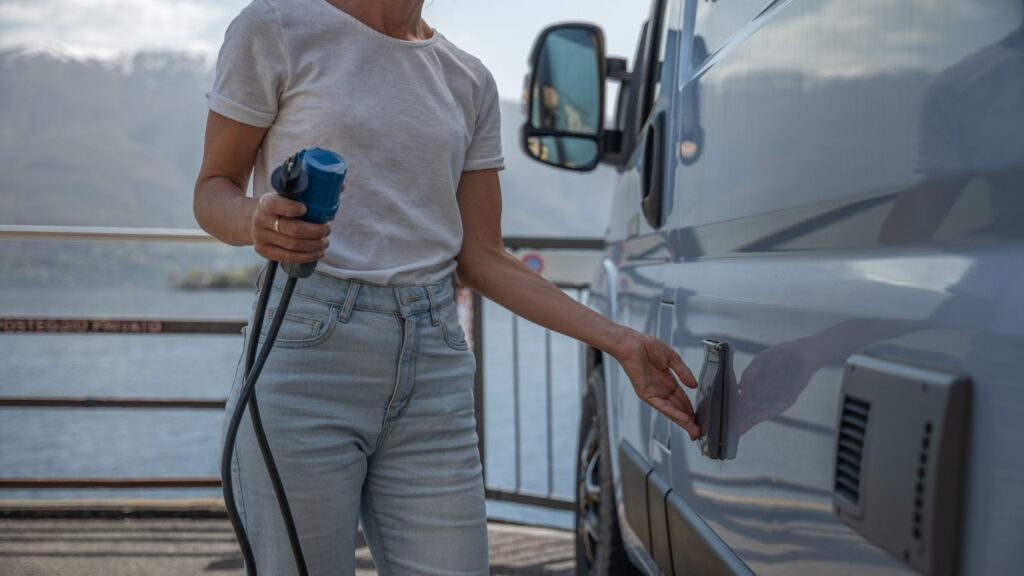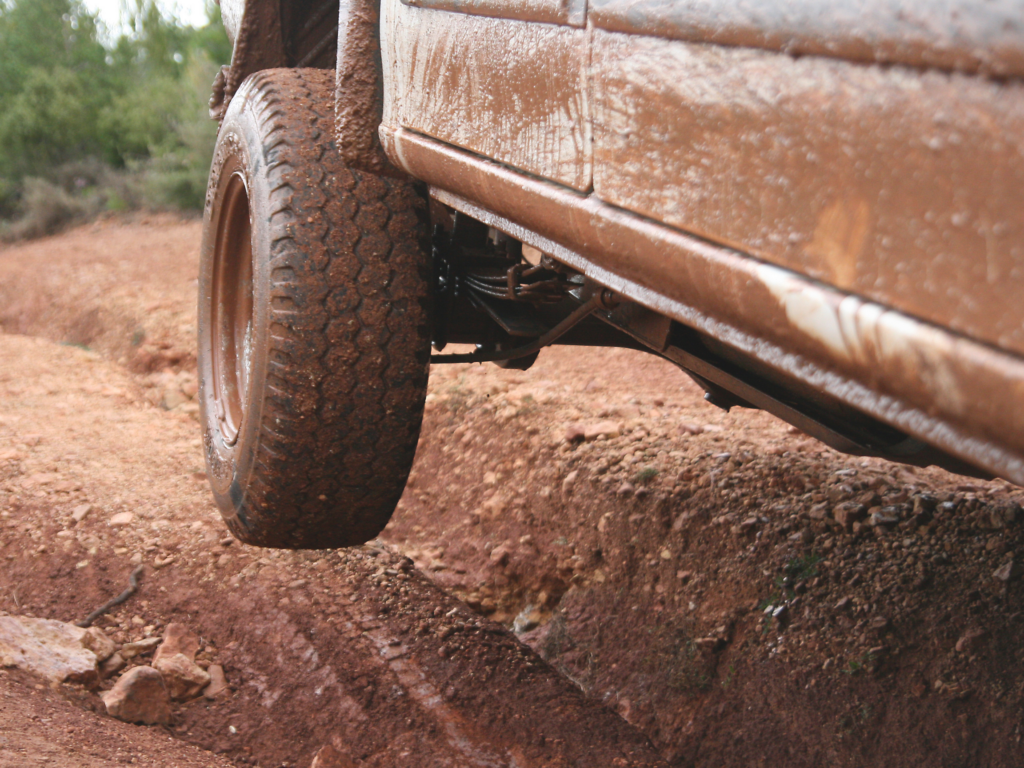In the world of van life, where freedom meets adventure, one essential component reigns supreme: solar power. For those traversing the open road in their campervans, the ability to generate electricity from sunlight offers unparalleled independence and sustainability.
In this guide, we delve into the realm of camper van solar panels, exploring the various types available, their pros and cons, tips for determining the right setup for your needs, and a brief overview of how solar power works.
Table of Contents
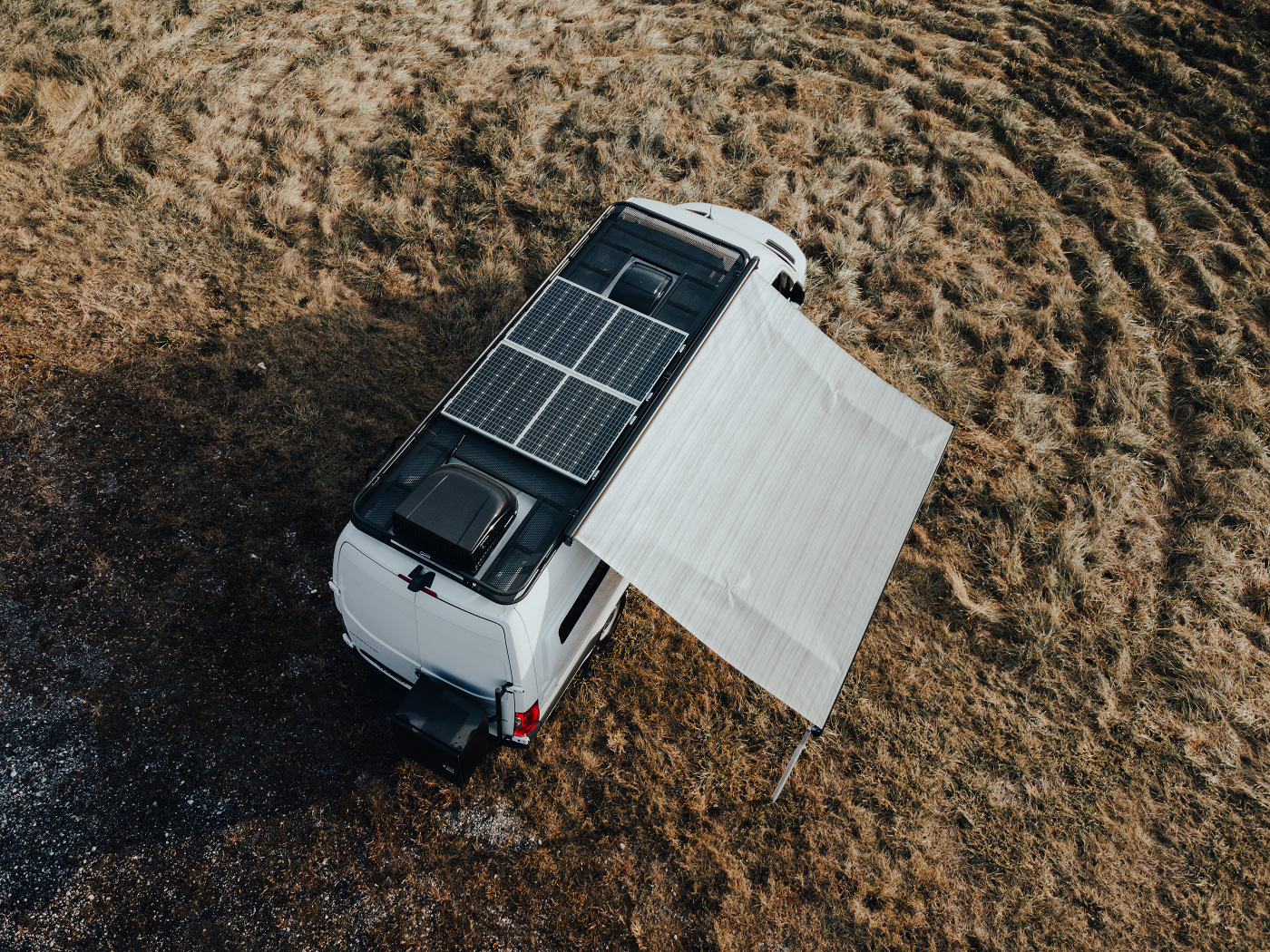
How Solar Power Works
You might be wondering how solar power actually works. There’s a lot to it that would need its own separate article to define, but simply put, a solar panel array converts sunlight into electricity (solar power) through photovoltaic cells.
When sunlight hits the cells, it excites electrons, creating a flow of electricity. The energy is typically routed through a solar charge controller and stored in a battery bank (house batteries that are separate from your starter battery) for later use. This direct current (DC) is then converted into alternating current (AC) using an inverter, which powers the electrical appliances in your campervan.

Why Solar Power for Van Life?
Solar power is a renewable, reliable, and sustainable source of electricity while on the move. Here’s why it’s the go-to choice for many nomads:
- Off-Grid Freedom: With solar panels, you can break free from the constraints of traditional power sources, allowing you to roam far and wide without worrying about shore power hookups or running out of power.
- Sustainability: Using camper van solar panels reduces reliance on fossil fuels, making it an eco-friendly choice that aligns with the principles of sustainable living.
- Cost Savings: While the initial investment in solar panels may seem significant, the long-term savings on energy bills and the ability to avoid campsite fees with self-sufficient power can make it a financially savvy decision.
- Quiet: Unlike generators, solar power is completely quiet, so you won’t hear the rumble of an engine for hours at a time when you need to charge your batteries or use a large appliance.
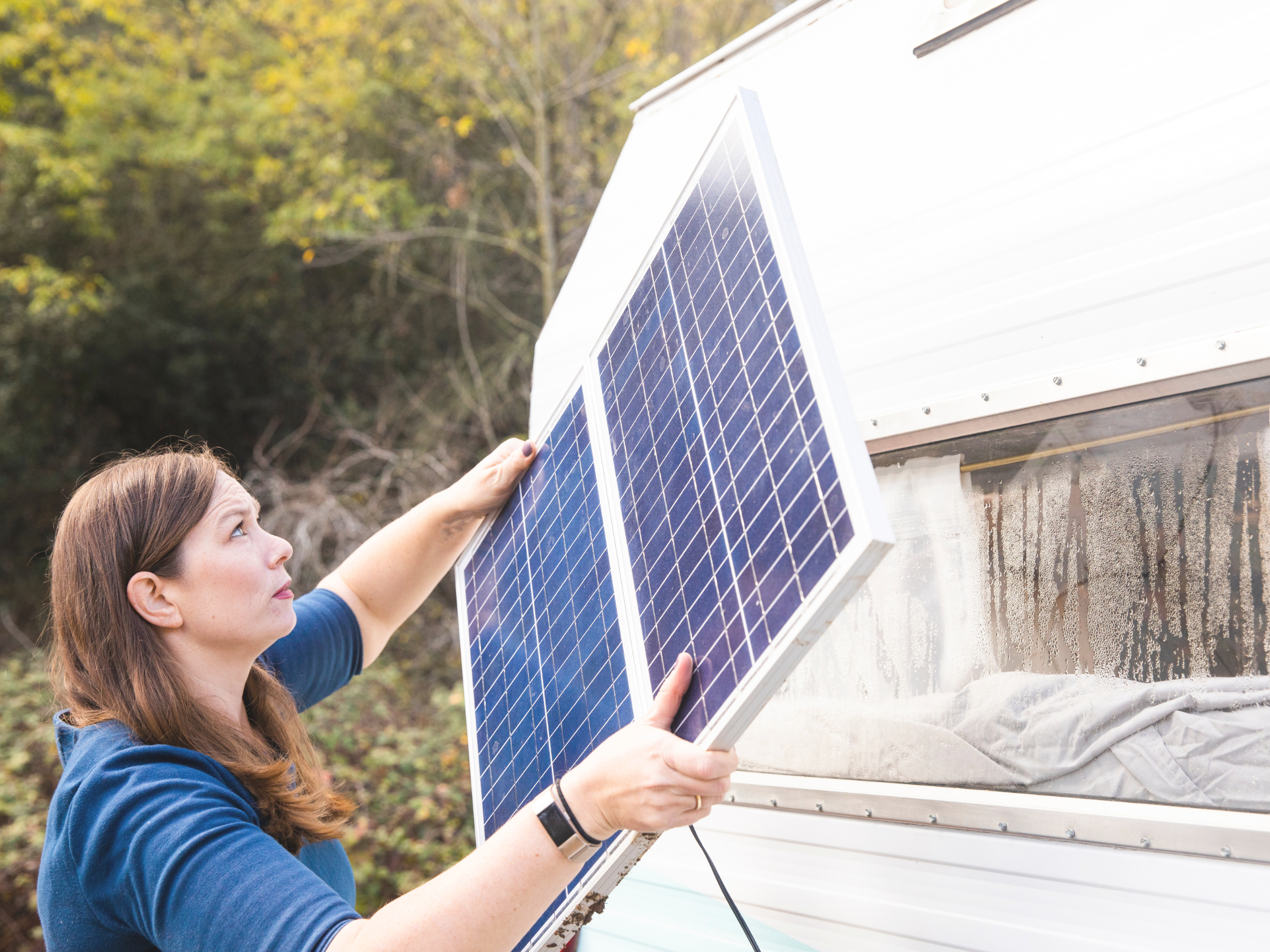
Types of Solar Panels
There are various types of camper van solar panels, each with its own set of advantages and disadvantages:
Monocrystalline Solar Panels
Monocrystalline solar panels are the rockstars of the solar panel world. They are rigid panels, made from a single, pure crystal of silicon, which allows them to efficiently capture the sun’s rays and convert them into electricity. Imagine tiny little solar superconductors; that’s what monocrystalline panels are like! They’re the most efficient option out there, meaning they’ll suck up the most sun and give you the most bang for your buck when it comes to solar power.
The downside? They can be a bit more expensive than other rigid solar panels, but they make up for it in their super-powered performance.
- Pros: High efficiency, space-efficient design, better performance in low light conditions.
- Cons: Higher cost compared to other types, prone to shading issues.
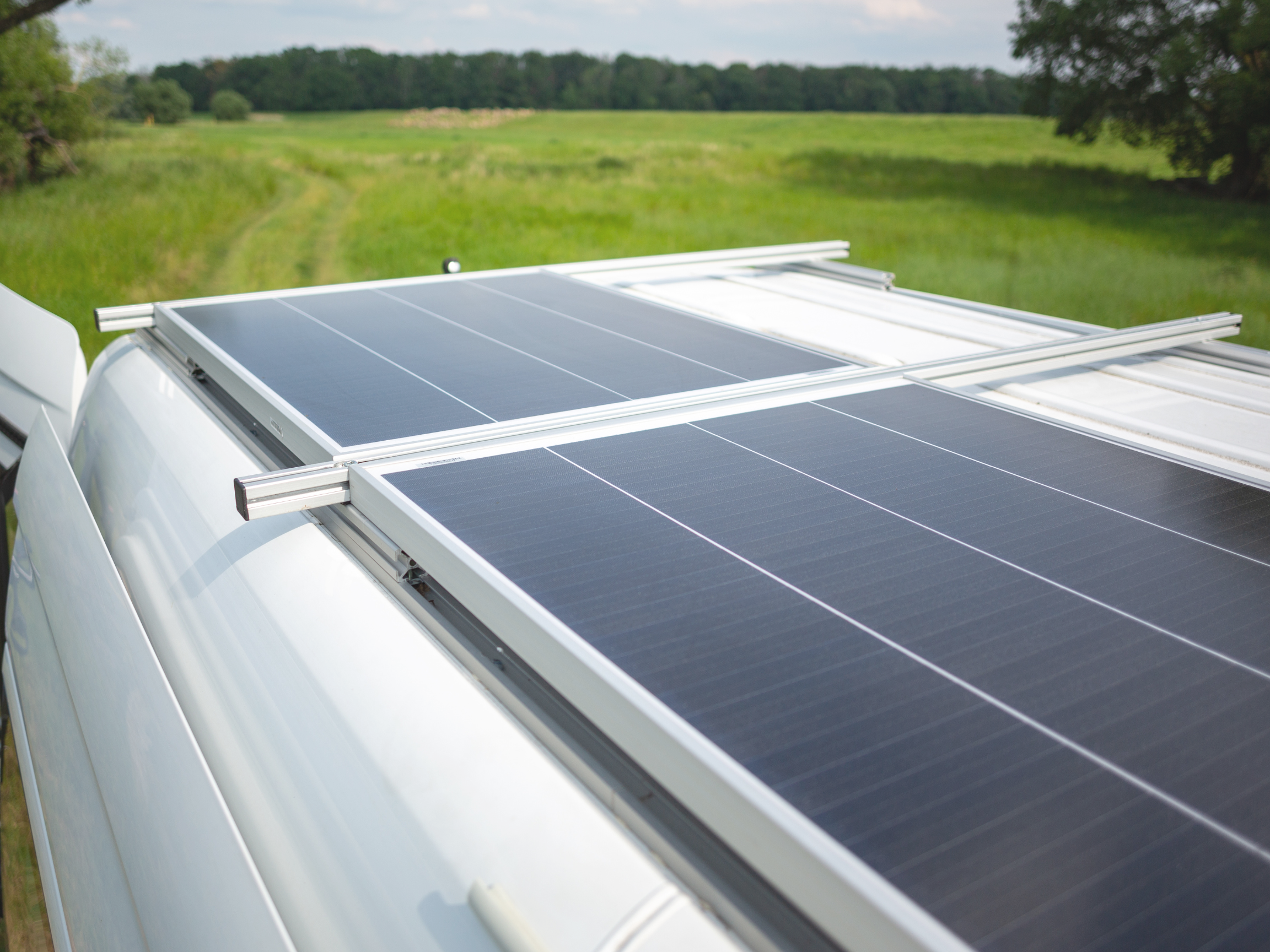
Polycrystalline Solar Panels
Polycrystalline solar panels are like the energetic backup singers to the monocrystalline rockstars. They’re also rigid panels made from silicon, but instead of one big crystal, they’re a mashup of lots of smaller crystals. This makes them a little less efficient than their monocrystalline counterparts, but hey, they still put on a pretty good show!
The good news? Polycrystalline panels are more affordable than monocrystalline ones. So, if you’re on a budget and still want to rock solar power for your van life, polycrystalline panels are a great option. They’re a perfect choice for van lifers who are looking for a balance between efficiency and affordability.
- Pros: Lower cost compared to monocrystalline, durable construction.
- Cons: Slightly lower efficiency, larger footprint required for the same power output.
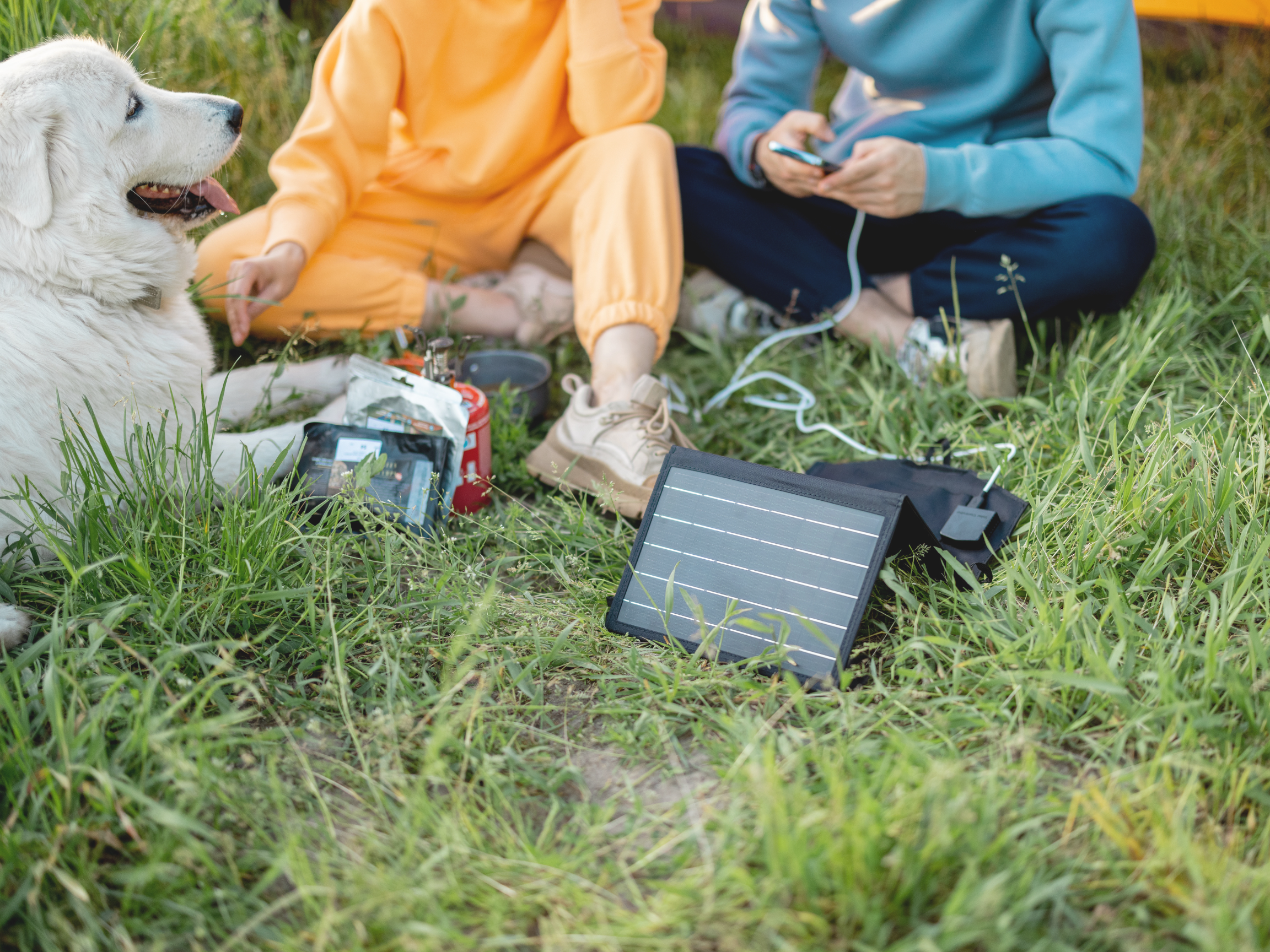
Thin-Film Solar Panels
Thin-film flexible solar panels are the ninjas of the solar panel world. They’re made from a thin layer of solar material deposited on a flexible backing, making them lightweight, bendy, and ideal for unusual surfaces like curved roofs.
Here are the two main types of thin-film flexible solar panels:
Amorphous Silicon: These are the stealthy ninjas of the bunch. They can be installed directly onto your roof, making your profile low, and are practically invisible from the ground. Their power output isn’t quite as efficient as rigid monocrystalline or polycrystalline solar panels, but their adaptability can make the lower power output with it.
CIGS (Copper Indium Gallium Selenide) Technology: CIGS panels are flexible, super thin, lightweight, and can even handle being walked on! They might not be the most powerful under the midday sun, but they work surprisingly well in low-light conditions, like cloudy days or early mornings. The downside? They can be more expensive panels than other thin-film options. But, if you have lots of space on your campervan’s roof or need a durable, flexible solar panel, CIGS technology is a great choice.
- Pros: Lightweight, flexible, less affected by shading.
- Cons: Lower efficiency, larger area required for equivalent power output, more expensive than rigid solar panels.
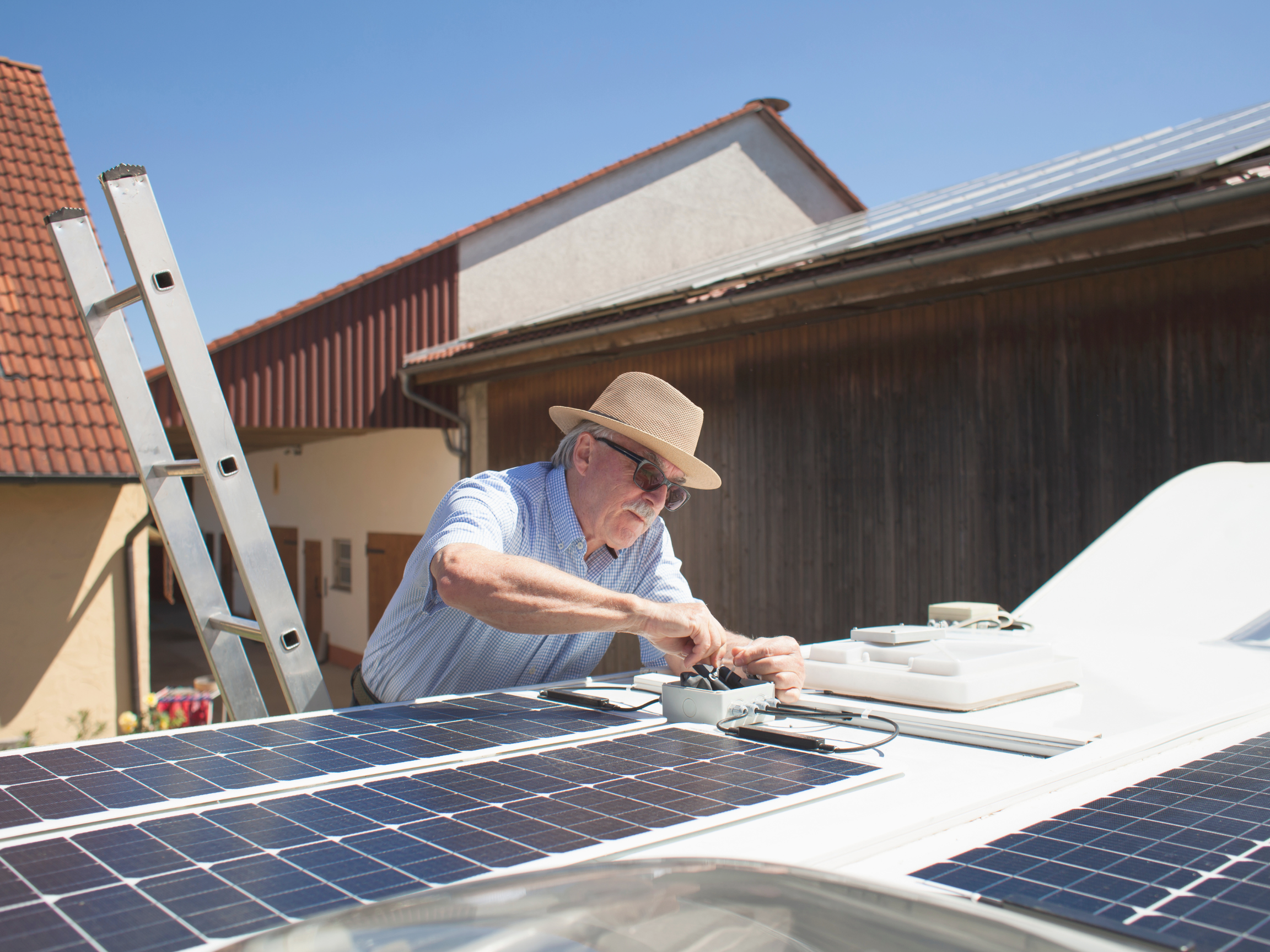
Determining Your Solar Needs
Assessing your energy requirements is crucial before investing in a solar panel system for your campervan. Here are some tips to help you determine the right panel sizes for your solar panel kit:
- Calculate Power Consumption: Make a list of all the electrical devices you plan to power in your campervan and estimate their daily energy consumption in watt-hours (Wh).
- Consider Usage Patterns: Factor in how often you’ll be using these devices and for how long each day to determine your daily energy usage.
- Account for Seasonal Variations: Keep in mind that sunlight availability varies depending on the season and location, so adjust your calculations accordingly.
- Consider a Backup: If you travel frequently in cloudy locations like the Pacific Northwest or far north like Alaska, you might want to have an additional power source with you, such as a portable power station and foldable panels. This can be a lifesaver if you have some back-to-back cloudy days and need an extra boost until the sun shows itself again.
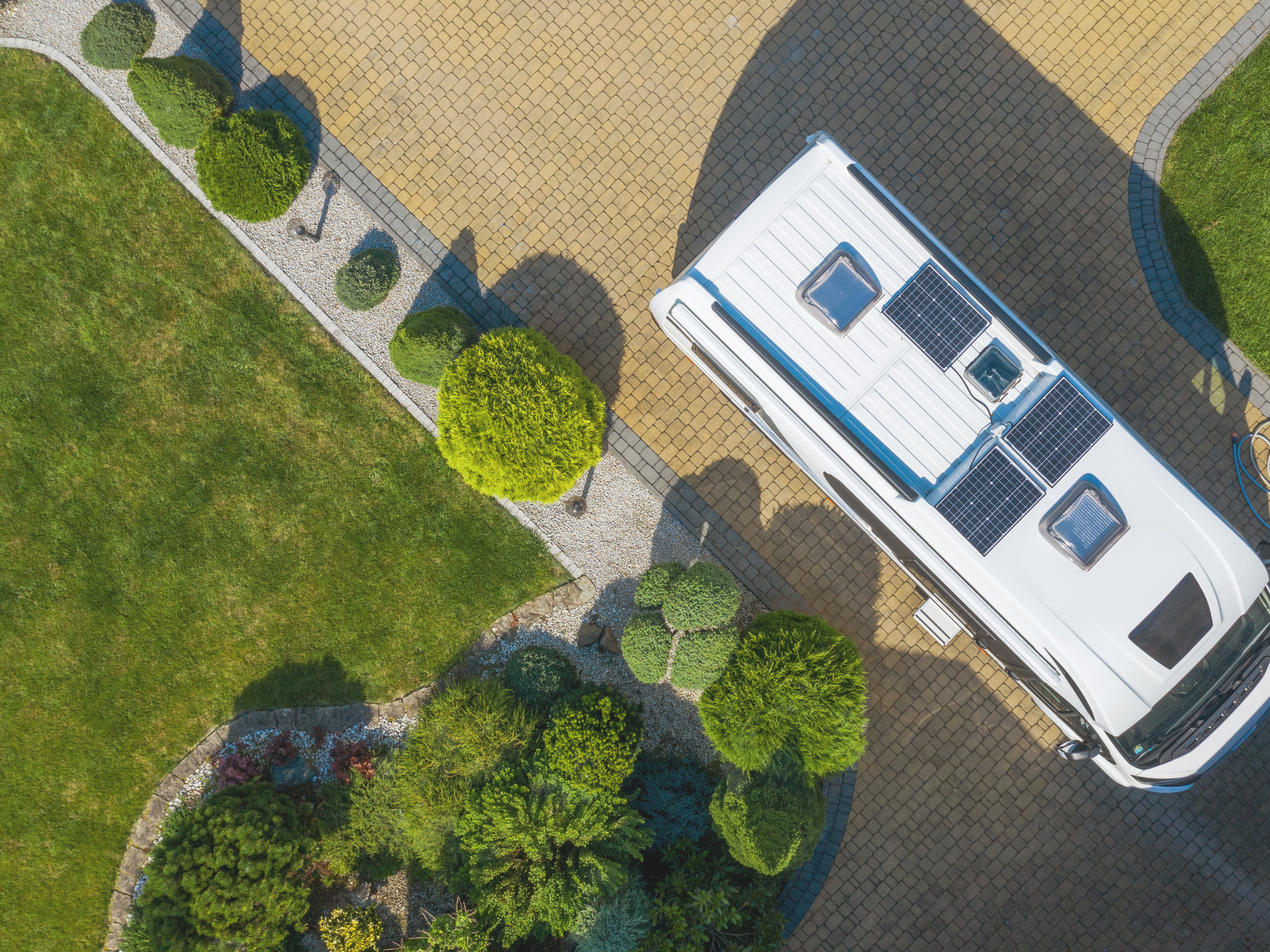
Additional Camper Van Solar Panel Considerations
Beyond determining what type of campervan solar panel you want to use and how much solar power you need, there are some additional things to consider when going solar.
- Battery Type: What will our battery capacity be? Are you using lithium-ion or deep-cycle batteries? This will help you determine what you will need your solar output to be
- Electrical System: Are you sticking with a 12-volt system, or do you plan on building a 24-volt system? This may change some of the components you use and your overall battery capacity.
- Components: Not all solar power components are compatible, so make sure you plan to use components that will work with the camper van solar panels and batteries you choose.
- Bypass Diodes: These are what allow power to continue from one cell to another if one becomes blocked or damaged. The more bypass diodes, the more efficient your solar panel will be. Most solar panels have one bypass diode per row of cells.
- Warranty: And finally, ensure you read the warranty specifications for not only your camper van solar panels, but for all of the solar power components you will be using. Read reviews and ask for recommendations.
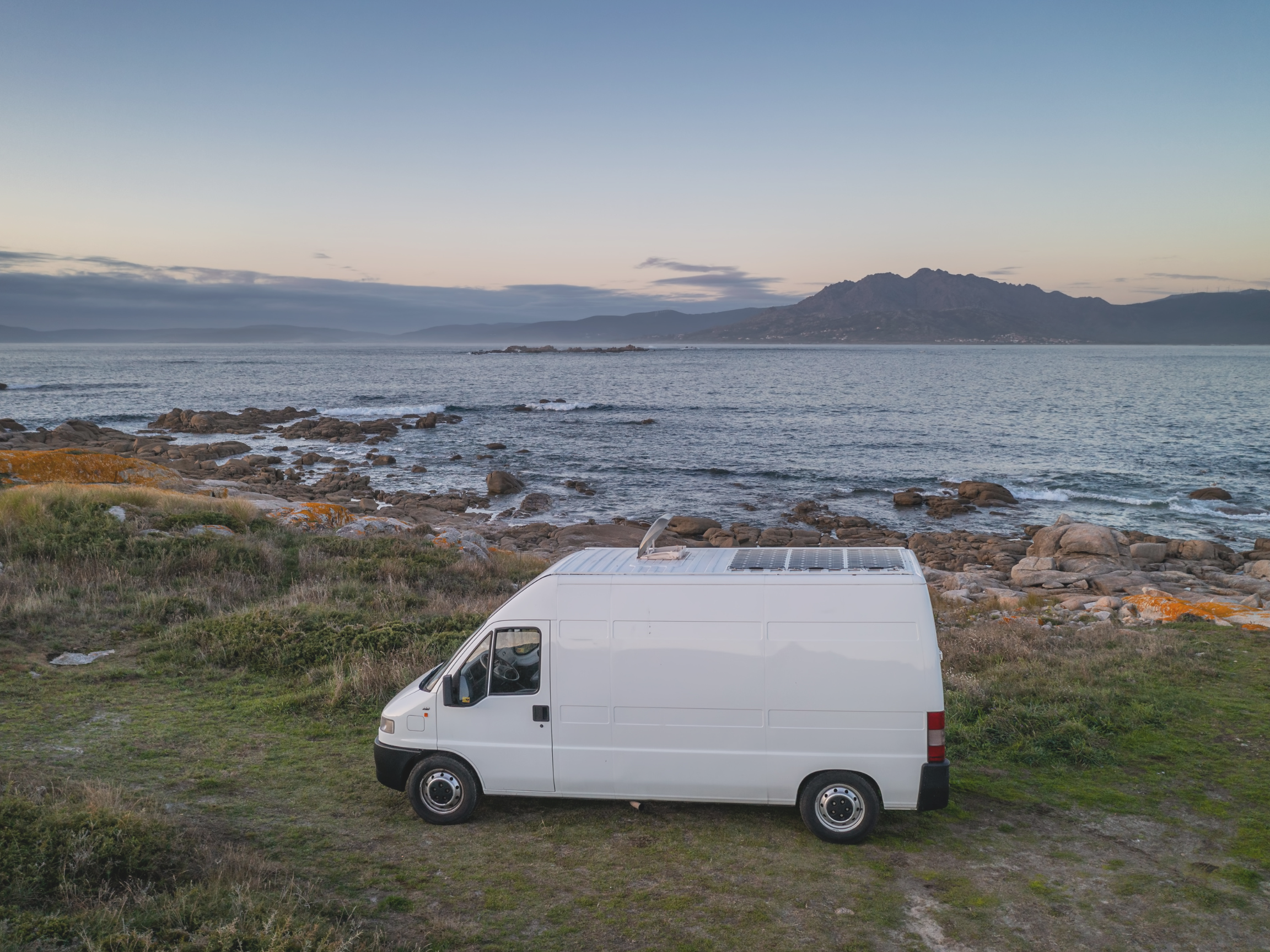
Which Camper Van Solar Panels are Right for You?
Solar panels are not just a practical addition to campervans; they symbolize independence and sustainability for those embracing the nomadic lifestyle. With solar power, van lifers can explore the world with newfound freedom, all while reducing their environmental footprint and enjoying significant cost savings in the long run.
Whether you opt for monocrystalline, polycrystalline, or thin-film panels, investing in camper van solar panels promises endless adventures under the sun.
You can utilize our extensive aftermarket and DIY directory to find a solar panel distributor or installer near you!
